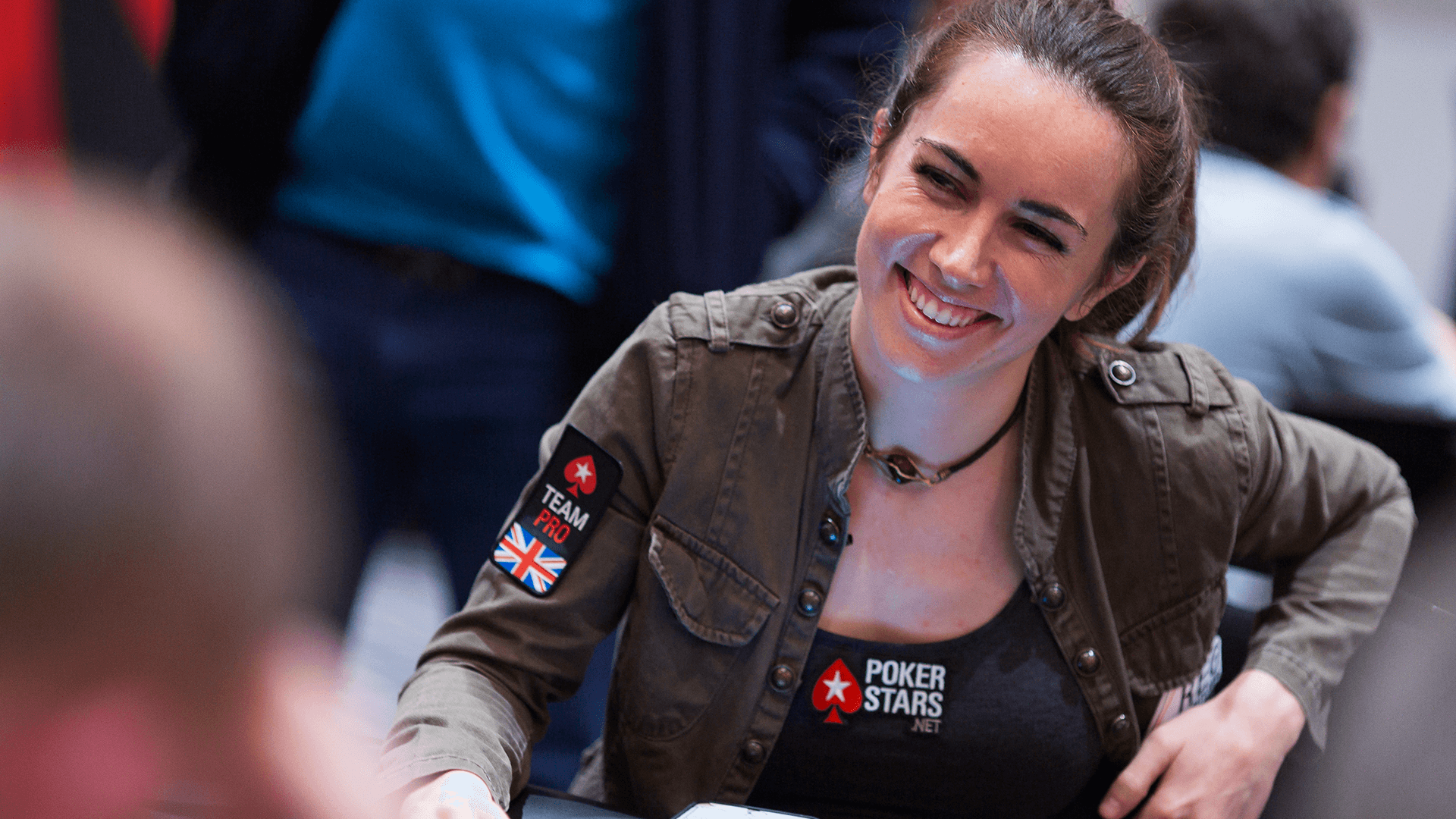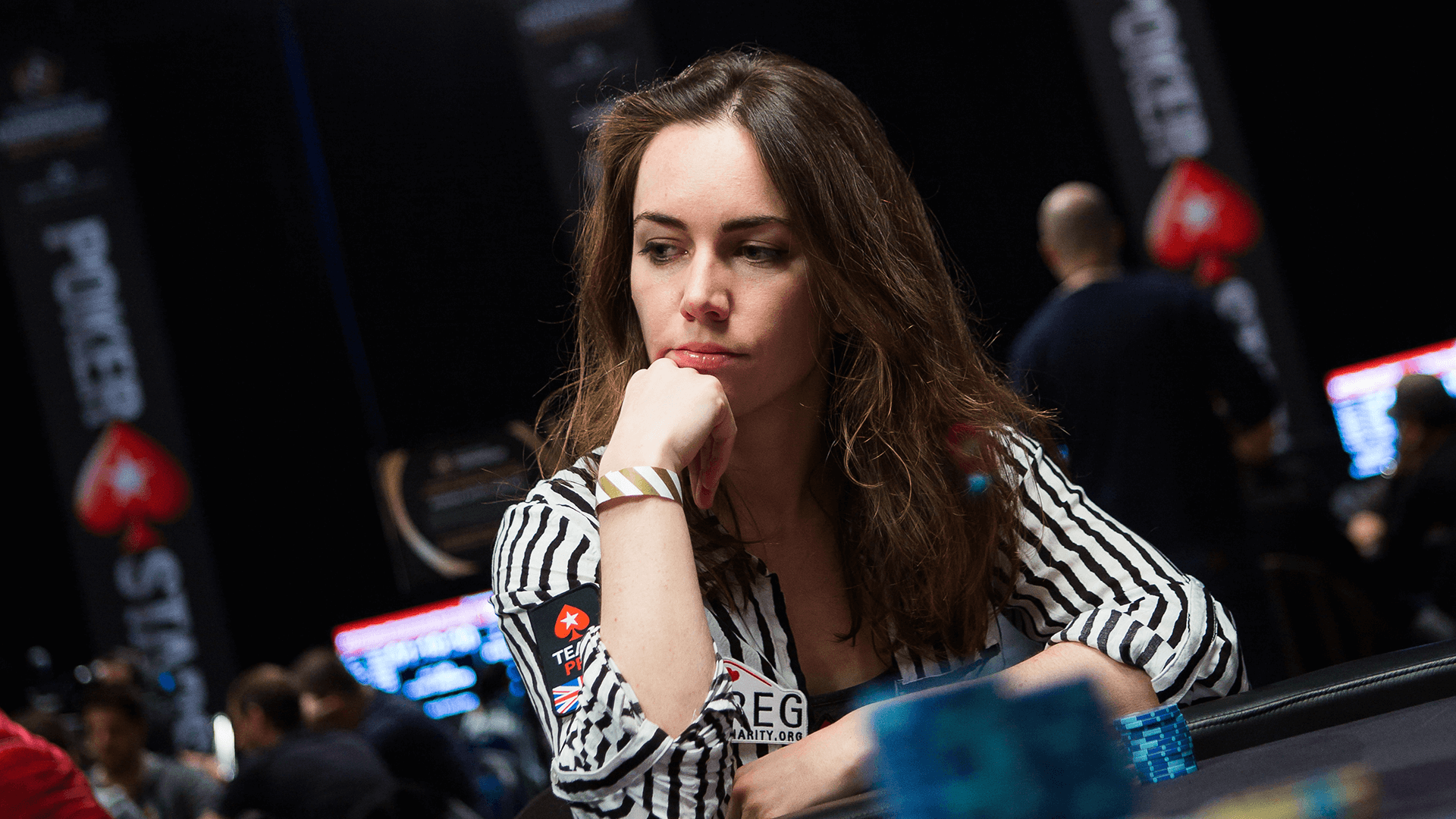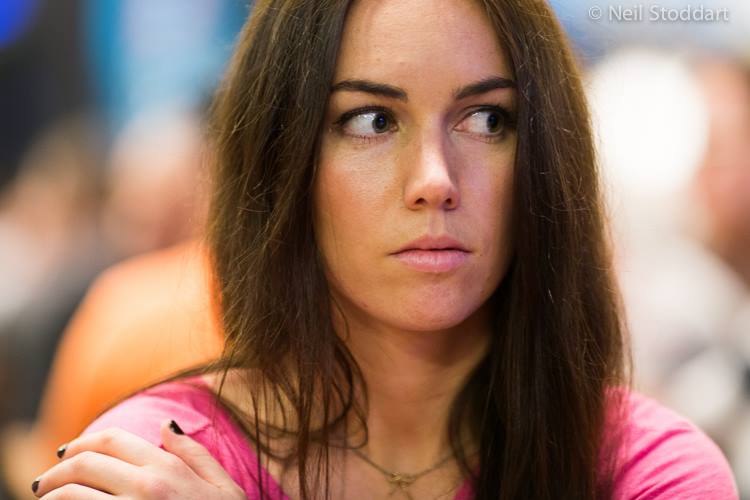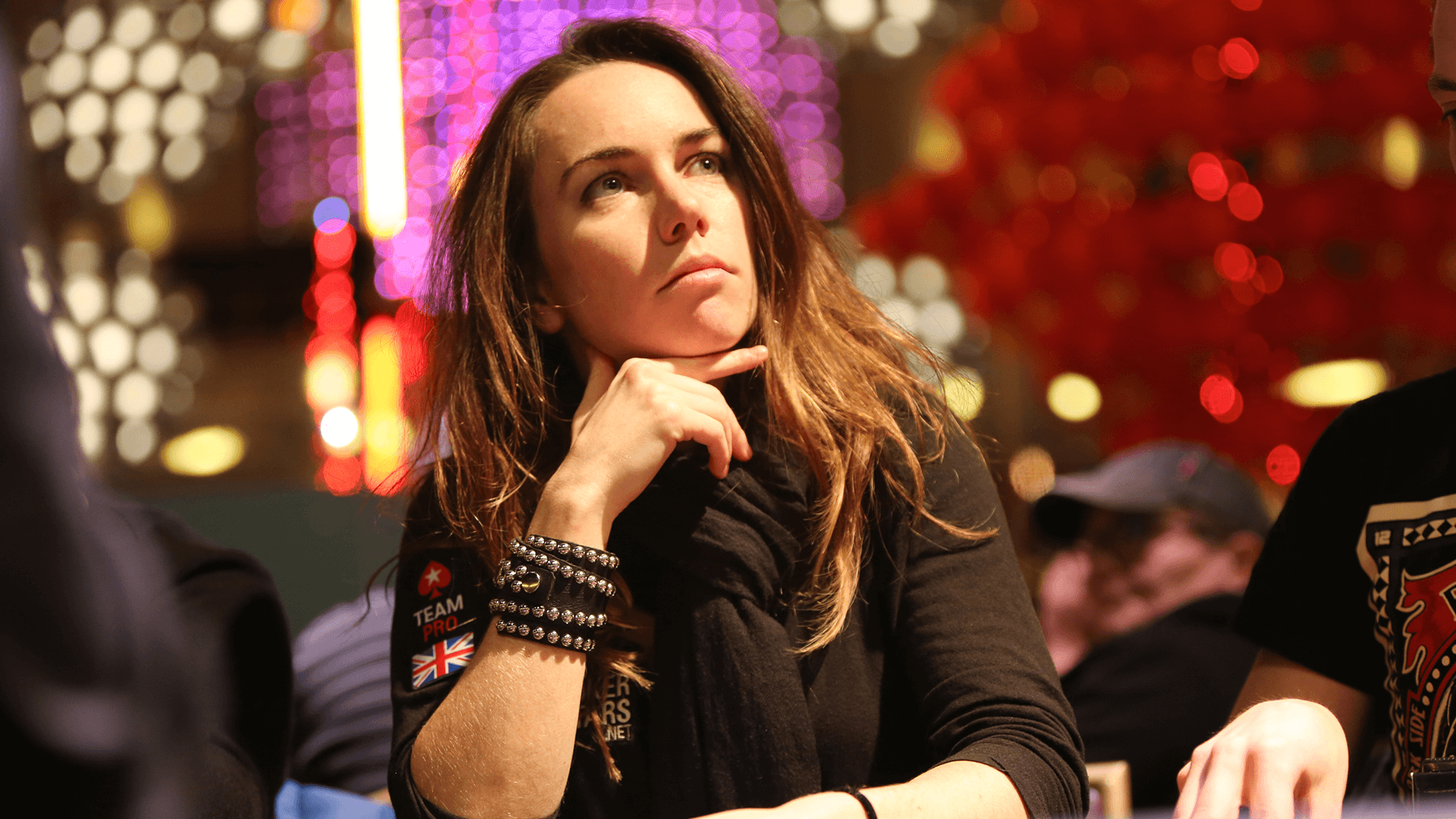‘Playing Your First Live Tournament’ with Liv Boeree
Emulating Players
Find a few players with good results in a similar tournament to the one you’re playing and then try to emulate their thought process. You can find players on Twitch or YouTube. Watch how they play, check out any interviews they have, and try to really dig into how they think throughout a hand and tournament.
Doing this will allow you to understand what the ideal benchmark is, allowing you to take advantage of more amateur players, and therefore moving you out of the amateur category.

Study the Game
It’s possible to be a great player and then get rusty. Poker is a very fast-paced game, strategies are always developing as are counter strategies. Put what you can into it, not just in terms of studying the game, but also maximizing the fun you have at the event.
#1 Piece of Advice to Qualifiers
Firstly, there are many different types of qualifiers. Regular players should of course focus purely on game play strategy.
For newer players who do not have so much experience, identify what your objective is. Don’t set unrealistic expectations, such as “my goal is to win the event”, because although not impossible, for a first time player you’re statistically unlikely to win. Even the best player in the world is statistically not likely to win the event, so it would be unreasonable of them to expect to win the event.
Having a positive mindset is exactly what you should do. But there’s a whole notion of expectations minus reality = happiness, so if you set your expectations far higher than what the average outcome of reality will be, then you’ll be setting yourself up for disappointment most of the time.
(Expectations – Reality = Happiness)
Have an honest conversation with yourself, and say what is a realistic expectation I can get out of this, such as:
- Looking to have a cash – not necessarily in the main event but a side event
- Looking to have a restful vacation
- Making new friends
- Coming away with a story
Don’t make your whole objective and goals of this experience based on how you happen to do in one tournament. Set yourself up to make sure you have the best time you can.

When you have a tough player on your left
There will be a situation where a tough player sits to your left, such as Igor Kurganov. If you go deep in the tournament, you should expect this to happen at some point.
In this situation, the thing to consider is to look for hands that have playability. Perhaps try tightening your opening range. You still need to mix up your range of hands, such as 76s, 87s, AA and KK. Otherwise, by only playing big hands, you’re very transparent. You want to reduce speculative hands, however. Maybe try only opening with them half the time.
If somebody is relentlessly three-betting you, and they are hands towards the top of your range, obviously don’t fold those. But the hands you’re on the fence with (umm-ing and ahh-ing), these are the times you should four-bet them, especially with 60+ Big Blinds stacks. These are the hands you feel you’re probably ahead of their range as they are three-betting too much – hands like KJ – sometimes you’ll want to four-bet them. Just make sure you do not do this too often.
When you do four-bet, make sure your sizing is bigger. What I often see is players get frustrated against a tough aggressive player, think “ahhhh, I’ll get them back” and then min four-bet, for example:
- A player in the Cut Off raises to 10,000 with KJo
- The aggressive Button three-bets to 30,000
- Everyone else folds
- The Cut-Off four-bets to 65,000
This is not enough; this gives them a really good price to call. If you’re going to four-bet to shut them down, try and make it 3 x their raise at the least – so you actually put some pressure on them.
The days where players were min-raising each other are pretty much done now. I’d recommend watching how pros are sizing their bets in more recent live tournaments. You can watch recent EPT Streams over on PokerStars Twitch.
Bluff Tip: if you’re are going to bluff, make it count. Don’t give up on the bluff when you’re called. Make a small bet on the flop and a big bet on the turn, that usually does the trick. Some pros will often float the flop, which means they will call your continuation bet, but give up on the turn. Of course, it all depends on the situation, the player and so on.

Getting Comfortable with People Staring at you
The most obvious difference between online and live poker, is that other players will stare at you in hopes of picking up a read, whilst you think and make your decisions.
If you’ve not played live before you may find this stressful. Having someone trying to decipher your brain can be quite disconcerting, especially when you’re in a stressful situation and you’re trying to think. Remember: the person is trying to intimidate you with their look.
Just because someone looks like they are looking into your soul, doesn’t mean they are. It’s far harder to extract information from the way people are looking or acting than players let on. Everyone wants to pretend they are a mind reader, but very few are. It’s an unrefined art. Often, when someone claims to have a read, it’s just to unsettle you.
The best advice I could give you is to get out there and do it. Don’t let the first time you play live be a big event – play as many smaller games as possible. This will relieve some stress and the added pressure of live play.
Go to your local card room, or wherever you can play live, and play some cash games or low buy-in tournaments. Get used to the physical interactions, the handling of the chips, the table talk and just really get used to the idea of people starring at you.
When it comes to reading your opponents, try not to get to caught up in it. Just as it’s hard for players to read you, it’s hard for you to read opponents. One thing I will say, generally the lower down the body the read the more reliable it is. For example: players tend to not focus on their feet, and there have been some very rare times where I’ve been 50/50 on whether to call or fold on a huge pot – where the math is super close – and I’ll have a little look at their feet when possible. If I notice beforehand that perhaps they are normally mostly still with their feet and now suddenly their feet are jiggling around, that’s often a sign of strength. It’s not very reliable information unless you’ve been playing with someone for hours and built up a baseline of what their natural physical behaviour is, though.
If it helps, wear sunglasses. Wear a hat if that makes you feel more comfortable. A baseball cap is great, because if someone is looking at you, you can just look down at the table, it blocks your line of sight and they can’t see your eyes. It’s a nice comfort giver.
What do you do if you’re Card Dead?
It will happen at some point. Depending on stack depth, I would say just be patient, because most multiple day tournaments have a good structure, and the blind levels are long so there is plenty of play. Even if you drop down to 40 or 30 big blinds, it’s not the panic zone.
I used to panic a lot. Say you start off with 300 big blinds, lose quite a big pot and half your stack, and you start to think: “oh no, I’ve got half the average stack”. Then you panic. You’ll start playing all these weird hands in bad spots that you really shouldn’t. But you’ve actually still got 100 or 150 big blinds.
Don’t get blinded by the fact that the average stack is higher than your stack. All you need to do is be familiar with different stack sizes in any tournament and remember that 30 big blinds in a deep structure event with long levels is way more playable than 30 big blinds in a small buy-in tournament with 10-minute levels.
Lean on the side of patience and be aware of your table image. If you’ve been card dead and people notice that you’ve been extra tight because of that, find the occasional spot to raise with some kind of hand like 56s or 98o in late position. Look for little opportunities to take pots down, and those little moments where you have not won a hand for 1 or 2 hours – when you have a little victory such as stealing the blinds – it will feel great.
Don’t panic even if you’re down to 15 big blinds and everyone else has 100. I’ve had so many occasions when I’ve got short and then made a comeback. Like at EPT San Remo. I went from Day 1 with a 30,000-starting stack to 15,000. I thought: “oh no, this is it”. Then boom. I came back and won the whole tournament. Again, on Day 2 I was down to 20 big blinds, everyone else had 70 or so. I almost panicked again, but pulled myself together, found a double up spot and went from there.
Expect a roller-coaster with your stack. It’s not going to be increase, increase, increase. Usually it’s small decrease, small decrease, big increase. Your stack will go all over the place.
Example:
(Starting Stack: 30,000)
Level 1: 28,500
Level 2: 26,000
Level 3: 22,000
Level 4: 37,000
Level 5: 44,000
Level 6: 32,000
Everyone’s stack peaks. Try not to compare your stack to its peak. If you had 100k in chips and now you have 60k, don’t let it affect your play. If you’d have gone from 50k to 60k you’d be happy, right?
Tournaments are a journey that you won’t be able to predict. Be prepared for the swings and do not panic.

Should I Late-Reg in a Deep Stack?
Yes. If you’re not used to deep stack play, it takes a lot of focus and energy. If you start the tournament on a tough table with deep stack specialists, it can be a long day. By late registering a few levels you’ll come to the table fresher than your opponents, your Day 1 will be shorter and your odds to make Day 2 will have improved. There is no pressure to register at the start.
Tournament Routine Tips
Dinner Breaks – If there is a dinner break, avoid big meals. If my body is digesting a big meal, there is very little going on in my brain. Try to eat little healthy snacks throughout the day rather than a big meal. Avoid big sugar rushes, try to eat things that will keep your blood sugar levels balanced throughout. If you like coffee that’s fine, just try not to drink it too late because you do not want it affecting your night’s sleep.
End of Each Day – Try to do something relaxing and not think too much about poker. There needs to be a clear end – play is done for the day – now I’m going to see my friends, go for dinner, go for a relaxing walk on the beach. You need to detach so your brain is not thinking through hands before you’re trying to sleep. That said, if you do make it into the later days of the tournament, your brain is probably going to be a complete mess (at least mine always is). Be aware of yourself and do whatever calms you down and relaxes you.
Selling Action
If you have qualified for free or via a much smaller satellite, buy-in to the event you’re playing, but feel free to sell some of your action. This allows you to lock up some profit right away.
Example: if you win a $25,000 seat and sell 50% of your action, you can put $12,500 in your pocket right away. Of course, when you cash, you’ll only be cashing for half, but the times you do not cash, you would have already locked up some profits – for spending money at the event or to play smaller side events. You can speak with family and friends to see if they are interested.
Summary
- Emulate other professional players
- Create positive expectations
- Don’t fear tough players
- Get comfortable with playing live
- Don’t panic when card dead
- Late reg, eat right, relax after each day and sell some action
Best of luck!
Liv Boeree

